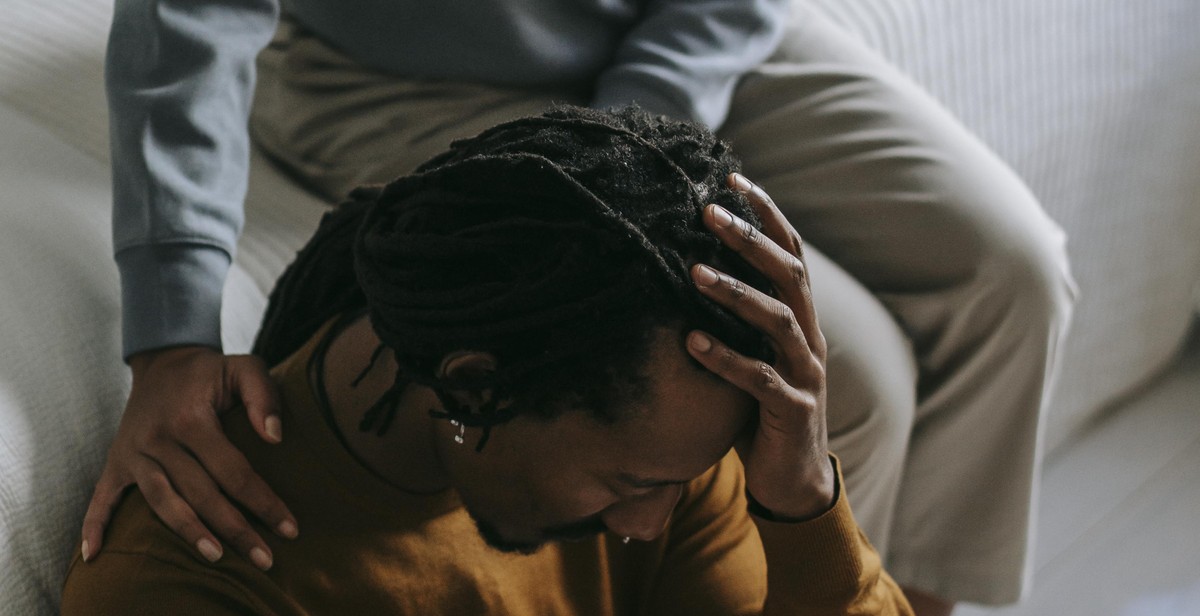The Challenge of Dating After Grief
The loss of a loved one can be an incredibly difficult and traumatic experience. Whether it’s a spouse, partner, or close family member, the pain of grief can take a toll on every aspect of your life. One area that can be particularly challenging is dating. After experiencing such a significant loss, the idea of opening yourself up to the possibility of love and connection with someone new can feel overwhelming.
However, the desire for companionship and the need for human connection is a natural part of the healing process. It’s important to acknowledge and honor your grief, but it’s also important to not let it define your future relationships. Dating after grief can be a complex and emotional journey, but it’s one that can lead to a fulfilling and rewarding new chapter in your life.
The Importance of Self-Care
Before embarking on the dating scene after grief, it’s important to prioritize self-care and take the time to heal. This can involve seeking support from friends, family, or a therapist, practicing mindfulness and self-reflection, and engaging in activities that bring you joy and comfort.
It’s also important to recognize that everyone’s grieving process is unique and there is no set timeline for when it’s “appropriate” to start dating again. Take the time you need to heal and honor your own timeline.
Communication is Key
When you do decide to start dating again, communication is key. Be open and honest about your past experiences and how they have shaped you. It’s important to find a partner who is understanding and supportive of your grief journey.
Overall, dating after grief can be a challenging but ultimately rewarding experience. By prioritizing self-care, honoring your own timeline, and communicating openly with potential partners, you can find love and connection again after loss.

Understanding Grief and Its Impact on Relationships
Grief is a natural response to loss, and it can have a significant impact on our relationships. According to the Kübler-Ross model, there are five stages of grief that people typically go through:
- Denial: This is the initial stage, where you may feel shock or disbelief about the loss.
- Anger: In this stage, you may feel frustration, resentment, or anger about the loss.
- Bargaining: This is when you may try to negotiate with a higher power or try to find ways to reverse the loss.
- Depression: In this stage, you may feel sadness, loneliness, and a lack of motivation.
- Acceptance: This is the final stage, where you come to terms with the loss and begin to move forward.
It’s important to note that everyone experiences grief differently and may not necessarily go through all of these stages in order.
How Grief Affects Our Relationships
Grief can affect our relationships in a variety of ways. For example:
- Communication: You may find it difficult to communicate with your partner or loved ones during the grieving process.
- Mood changes: Grief can cause mood swings and changes in behavior, which can be difficult for others to understand and cope with.
- Intimacy: It’s common for grief to affect sexual intimacy and physical touch.
- Attachment: You may become more emotionally attached to your partner or loved ones during the grieving process.
- Conflict: Grief can also lead to conflicts and disagreements in relationships.
The Importance of Self-Care During Grief
Self-care is crucial during the grieving process, as it can help you cope with the emotional and physical effects of grief. Some self-care strategies may include:
- Exercise: Regular exercise can help improve mood and reduce stress.
- Healthy eating: Eating a balanced and nutritious diet can help improve physical and emotional well-being.
- Therapy: Speaking with a therapist or counselor can help you process your grief and learn coping strategies.
- Support groups: Connecting with others who have experienced similar losses can provide comfort and understanding.
- Self-reflection: Taking time to reflect on your emotions and thoughts can help you gain a deeper understanding of your grief.
By taking care of yourself during the grieving process, you can also improve your relationships with others by being more emotionally available and better able to communicate your needs.

Navigating the Dating World After Loss
After a significant loss, such as the death of a spouse or partner, it can be challenging to think about dating again. However, it is essential to understand that it is okay to want to love and be loved again. The process of dating after loss is unique and requires careful consideration and patience. Below are some tips to help you navigate the dating world after loss.
When to Start Dating Again
Deciding when to start dating again after a loss is a personal choice. There is no timeline for grief, and everyone grieves differently. It is crucial to take the time you need to heal and process your emotions before jumping into a new relationship. Rushing into a new relationship can lead to complications and may not be fair to your new partner. Take the time to heal and be ready emotionally before starting to date again.
How to Talk About Your Loss with a New Partner
Talking about your loss with a new partner can be challenging, but it is essential to be honest about your feelings and emotions. It is important to communicate your boundaries and let your partner know what you are comfortable with. If you are not ready to talk about your loss, let your partner know. It is essential to take things slow and not rush into a conversation that may be too emotional for you.
Dealing with Triggers and Emotional Reactions
When dating after loss, it is common to experience triggers and emotional reactions. It is essential to identify your triggers and communicate them with your partner. For example, if going to a particular restaurant reminds you of your late partner, let your partner know. It is crucial to take care of your emotional well-being and not push yourself into situations that may cause emotional distress.
Additionally, it is essential to communicate your emotional reactions with your partner. If you are feeling sad or overwhelmed, let your partner know. It is essential to have open and honest communication to build a healthy relationship.
Overall, dating after loss can be challenging, but it is possible to find love again. Take the time to heal and be ready emotionally before starting to date again. Communicate your feelings and emotions with your partner, and take care of your emotional well-being.

Building a Healthy Relationship After Loss
After experiencing loss, it can be challenging to open up to love and relationships again. However, it is possible to build a healthy relationship after loss by following a few key steps.
The Importance of Communication
Communication is crucial in any relationship, but it is even more important when building a relationship after loss. It is essential to be open and honest with your partner about your feelings and emotions. This includes discussing your past and how it has affected you. By communicating effectively, you can build a strong foundation of trust and understanding with your partner.
Taking Things Slow
It is important to take things slow when building a relationship after loss. Rushing into a new relationship can be overwhelming and may not allow you the time and space you need to process your grief. Take the time to get to know your partner and build a strong connection before jumping into anything too quickly.
Honoring Your Past While Moving Forward
While it is important to move forward in a new relationship, it is equally important to honor your past. This means acknowledging your loss and allowing yourself to grieve. It also means being open with your partner about your past and how it has affected you. By honoring your past, you can move forward in a healthy and positive way.
Building a healthy relationship after loss takes time and patience. By focusing on communication, taking things slow, and honoring your past, you can build a strong and meaningful relationship with your partner.

Conclusion: Moving Forward with Love and Hope
Dealing with grief after losing a loved one is a challenging process, but finding love again after loss can be equally difficult. However, it is essential to understand that it is possible to move forward with love and hope.
Firstly, it is essential to give yourself time to heal and grieve before considering dating again. Rushing into a new relationship may lead to emotional baggage and complications. Additionally, it is crucial to have realistic expectations and not compare your new relationship with the one you lost.
When you are ready to date again, ensure that you communicate your situation and feelings with your potential partner. It is vital to be open and honest about your past and current emotions. This will help build trust and prevent misunderstandings in the future.
Remember to take things slow and enjoy the process of getting to know someone new. It is okay to feel hesitant or scared, but do not let fear hold you back from finding love again.
Lastly, seek professional help if you are struggling with grief or finding it challenging to navigate a new relationship. A therapist or support group can provide you with the necessary tools and guidance to move forward with love and hope.
Overall, finding love after loss is possible, but it takes time, patience, and self-care. With the right mindset and support, you can move forward with love and hope, and find happiness once again.
